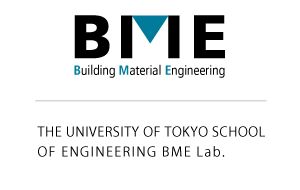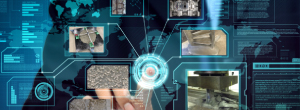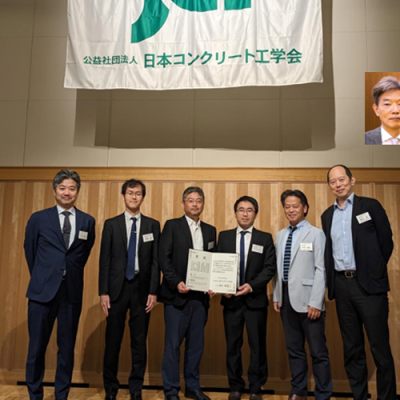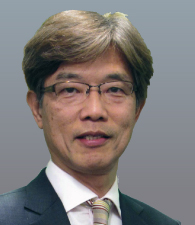
From Professor Noguchi
From the viewpoint of building materials, which are the primary constituent units of buildings and account for about 1/3 of the total materials and energy consumed by all industries, we conduct research on technology development and performance evaluation that contributes to minimising the environmental impact of buildings, extending their service life, optimizing maintenance and preservation, revitalization and conservation, improving fire resistance performance, and rationalizing construction. Specifically, we are conducting research for practical application on the development and evaluation of technologies that contribute to:
1) Development of recycling technologies to achieve carbon-neutral full-resource recycling of inorganic building materials (including concrete), and proposals for optimal supply chains.
2) Development of methods for predicting and controlling the deterioration of building materials as they attempt to return to a stable state on earth, and technologies for performance evaluation, repair, renovation, and conservation of deteriorated buildings (including historical cultural properties).
3) Proposals to effectively utilise unused resources (natural resources, industrial by-products, etc.) as building materials.
4) Development of 3D printing technology and IT utilization technology to improve production efficiency in the construction stage of buildings.
5) Evaluation of fire resistance performance of buildings using organic building materials (including wood) as interior and exterior materials, and development of technologies to prevent the spread of fire.
Students interested in joining the laboratory should contact noguchi@bme.arch.t.u-tokyo.ac.jp
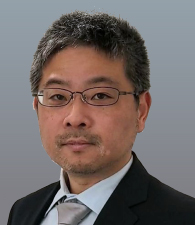
From Professor Maruyama
My research interests include materials design for extreme environments, materials development based on nature, maintenance and preservation of historical structures, and multi-scale performance evaluation of cementitious materials from the molecular scale to the structural member scale.
In Japan, where the emphasis has traditionally been on design, scientific research has become more important than engineering research in the age of maintenance and preservation. In other words, we are now in the era of understanding the chemistry and physics of materials, understanding and predicting time-dependent material changes and predicting performance over a period of 100 years or more.
In addition, the construction industry has a very large impact on the environmental burden in terms of resource consumption and CO2 emissions, so a small technological development can have a large impact in this area. It is also important to develop technologies to become carbon neutral, which includes a fundamental review of architecture. However, the start of this review should be the relationship between materials and people.
We will continue our research from these perspectives. If you are interested, please visit our laboratory.
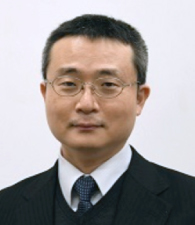
From Associate Professor Yoshioka
Specializing in fire protection engineering of buildings, our research interests include combustion properties of materials and components, gas toxicity during fires, refinement of fire test methods and prediction techniques, and fire properties in urban areas. The specific research themes in which we have been recently involved are the following:
(1) Clarification of and countermeasures against the spread of combustible exterior fires (including fires on the facades of high-rise buildings, such as Grenfell Tower in the UK).
(2) Evaluation and measures of the fire safety performance of fire-retardant-treated wood for building exteriors.
3) Research on evaluation of and countermeasures against fire behaviour of sandwich panels for building interiors.
4) Research on effective countermeasures against fires caused by sparks from welding and fusing during construction that scatter onto insulation materials.
5) Evaluation of toxicity of combustion gases during building fires and its application to evacuation safety design.
6) Technical study to improve the accuracy of data measurement during small-scale fire tests.
7) Development of a method to precisely predict full-scale fire behaviour using CFD and small-scale fire test data.
8) Study of precise prediction methods for fire spread in urban areas during large earthquakes and strong winds.
Career paths of graduates (since 2015)
Doctoral program
Tokyo University of Science / National Research and Development Institute of Architecture / Muroran Institute of Technology / Sumitomo Forestry / China University of Mining & Technology / Nikken Sekkei / Graduate School of Engineering, University of Tokyo / Zhejiang University / Hunan Institute of Science and Technology / Graduate School of Environmental Studies, Nagoya University
Master’s program
East Japan Railway Company / Doctoral Program, Graduate School of Engineering, University of Tokyo / JR Tokai / Mitsubishi Materials / Shimizu Corporation / Taiheiyo Cement / LIXIL / Konishi / Graduate School of Engineering, Hokkaido University / Ministry of Land, Infrastructure, Transport and Tourism / Cambridge University / Hakuhodo Inc.

